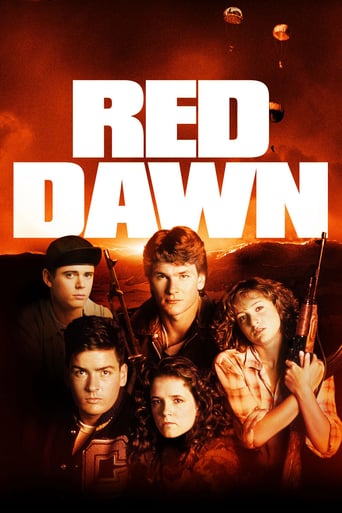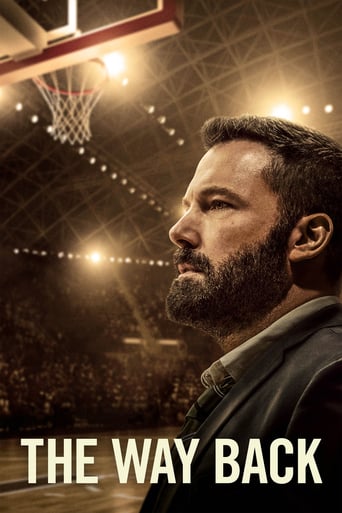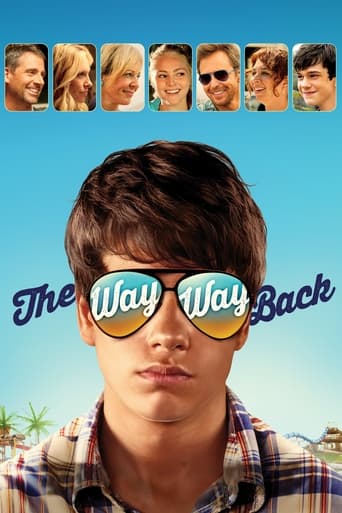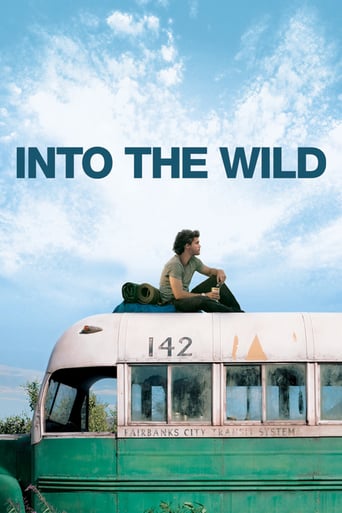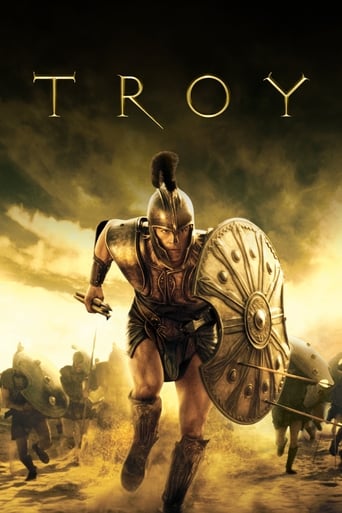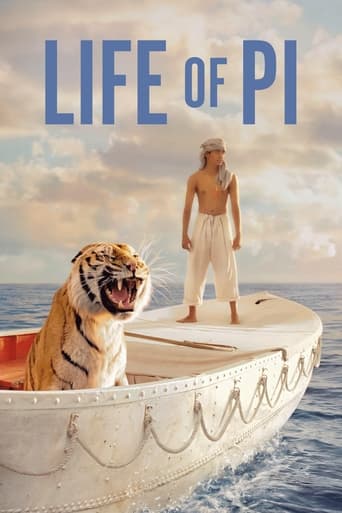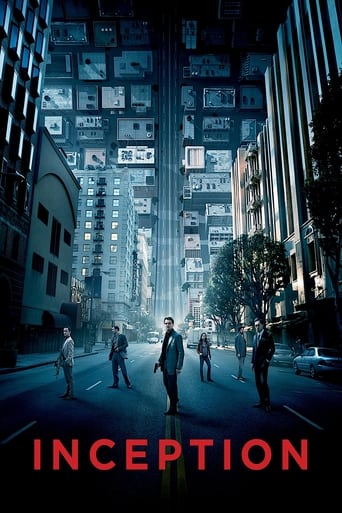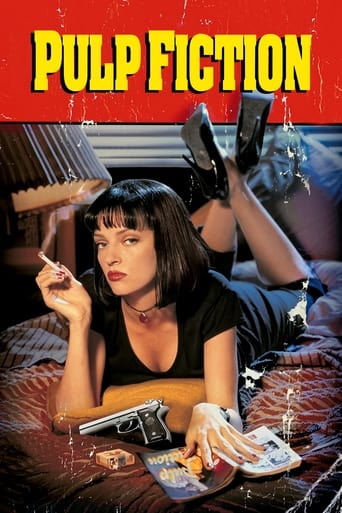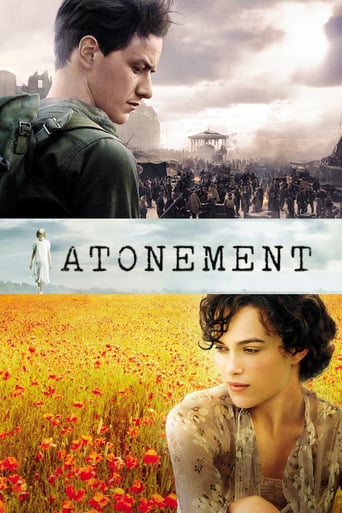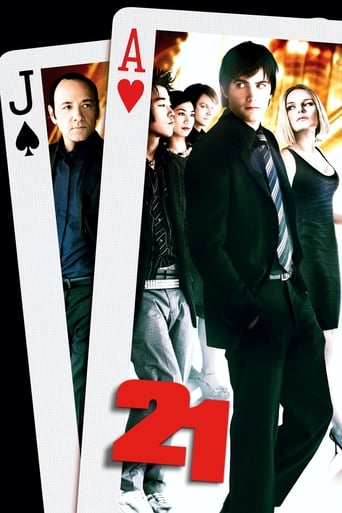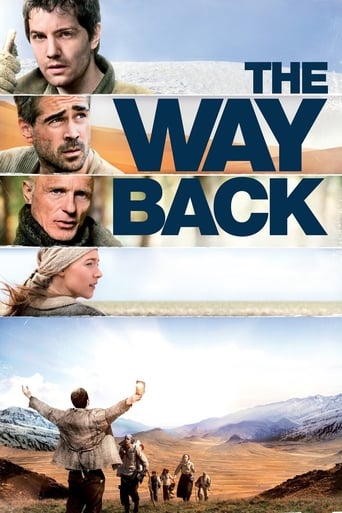


The Way Back
At the dawn of WWII, several men escape from a Russian gulag—to take a perilous and uncertain journey to freedom as they cross deserts, mountains and several nations.
-
- Cast:
- Ed Harris , Jim Sturgess , Saoirse Ronan , Colin Farrell , Mark Strong , Gustaf Skarsgård , Dejan Angelov


Similar titles
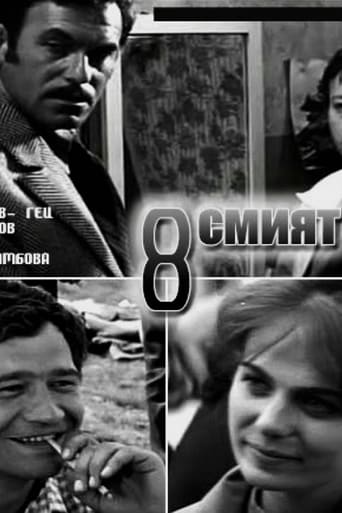






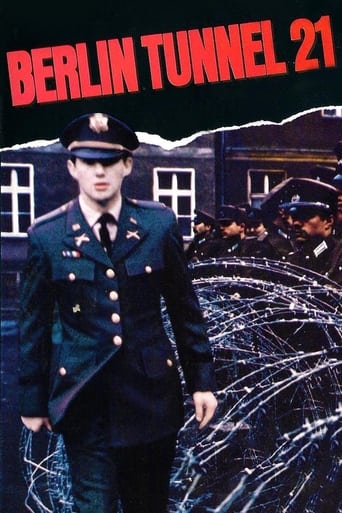
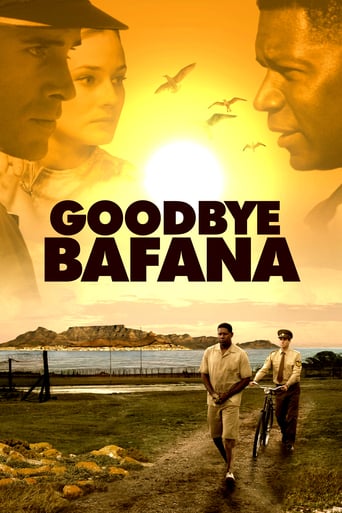
Reviews
Yawn. Poorly Filmed Snooze Fest.
Best movie ever!
A great movie, one of the best of this year. There was a bit of confusion at one point in the plot, but nothing serious.
It’s sentimental, ridiculously long and only occasionally funny
If you're looking for a film that makes you feel as if you're suffering along with the protagonists, you have come to the right place. The frustration I felt while watching this film is a testament to the wonderful job of the filmmakers and actors to make the plight of the characters palpable. In my opinion, what is the point of making a film about the very boundaries of human suffering if you do not make the audience feel as if they are suffering along with the main characters? Here, my feeling of frustration began in the Soviet Gulag, which is decently depicted in this film. The audience gets a real sense of the crowding, lice and power structures that were an ever-present part of every concentration camp. I was personally impressed at the addition of Valka's character and the representation of the role that "career criminals" played in the camps as the most powerful men in every barrack, namely because of their ability to incite fear and thus get what they want. It was also nice to see the point raised that some detainees in the camp still supported communism. It is important to see this depicted in the film since it is historically accurate that even though these people were imprisoned by the government, they were still loyal to communism and what it stood for. Consequently, in terms of the films accuracy, I was very impressed for a film about the gulags, which are a highly underrepresented subject in Hollywood. If I could change anything I would have added more casualties to the gulag than were shown in the film. It almost makes the conditions of the camp and the brutality of the environment not look as harsh without the almost constant death that would have defined actual life in the gulags. The feeling of frustration continued as the group escaped and eventually made their way into the desert on the way to India. I kept feeling as if I wanted the scenes in the desert to end so that I would no longer feel the irritation that rose in me as I just watched them walk over miles and miles of desert. I realized later that this was a choice that the directors of the movie consciously made in an attempt to convey to the audience the real frustration and desperation of the characters. Though there is debate about whether or not this walk to freedom did occur, there is no denying that the walk made you feel the pure despair and hopelessness of the protagonists who would go to such lengths to avoid concentration camps. In this sense, I would recommend this film to anyone who is looking for a film about Soviet Gulags. Not only does it provide a painfully real representation of camp life, it conveys the shear desperation that led several men to take on this type of journey. What does it say about the camps that these men would be willing to walk across a continent to escape?
Peter Weir's depiction of survival in The Way Back is raw and gripping in its cinematic artistry. Wide shots of the landscape and geography complement the pain and suffering endured by the escapees. The opening scenes depict the Soviet Union's interrogation tactics that forced friends and family to turn on one another, as Janusz's wife turned on him. Janusz's twenty-year sentence to a Gulag labor camp in Siberia is realistic. The film's depiction of camp life is also historically accurate to a degree. In the opening camp scenes, the audience sees new internes getting their heads shaved and the deterioration of internees, who have been in the camp. Some of these internees are blind. Furthermore, hierarchy and bartering is explored within the camp. An inversion of hierarchy is observed as the criminals have power within the camp system. One of these criminals, Valka later expresses his fondness of Stalin and communism, when the escapees trek from Siberia to India. Gulags often had prisoners with various political persuasions. The addition of this character complicated the narrative and added to the heterogeneity of the escapees. One of the other escapees, Mr. Smith is an American played by Ed Harris. Some Americans living in Russia were sentenced to years or decades in the gulags because foreigners were seen as threatening to the Soviet regime. The insertion of Saoirse Ronan's character, Irena, served the narrative as she bonded the other escapees and revealed their histories to the audience. Ultimately, the film portrayed how desperation and hope coexisted within the camps.
This film, which tells the semi-accurate story of gulag escapees, is beautifully filmed and does a nice job of depicting the basics of "gulag life," but the script, accents, and acting leave much to be desired. I found myself extremely bored - this film needed an editor. The plot is fairly basic - men escape the gulag and walk from Siberia to India. However, the script was dry and I did not find myself attached to any of the characters. Perhaps this is a personal opinion, but I do not understand why a director would cast a british actor and then ask them to speak in a Polish/Russian/Latvian/etc accent. If the viewer knows the character is from a specific country, why must we suffer through two hours of terrible accents. This is a frustrating element of the film. As for the acting, there is not much dialogue, but one can only make walking so interesting. The film's depiction of the gulag, a camp of little cinematic fame, is pretty accurate in terms of how people were interned, how long their sentences lasted, the psychological effects of the gulag, the social dynamics of the camp, and the terrible weather in Siberia. They only spend the first ten or fifteen minutes of the film in the actual camp, so I would not consider this a "camp film."
I saw this movie some years ago, or more accurately I saw half this movie some years ago. Maybe I was having a bad day but at the time I just couldn't summon the enthusiasm to see it through. So when I saw it advertised recently to appear on television I thought I would give it another shot. This time round I made it as far as Mongolia, which I suppose is progress. That I got this far is probably because this time around I noticed that it was directed by Peter Weir and because I am a big fan of Gallipoli I gave it more leeway and time for development. Alas my patience and respect for Peter Weir were not rewarded on this occasion. There is something very fundamentally wrong with this movie, or perhaps the story itself does not lend itself to audience engagement, at least on the big screen. Peter Weir's genius in Gallipoli was to make a "war" film (or actually an "anti-war" film) by showing practically nothing of war. 80% of that movie was about building up the characters and the relationship between them, and because we know them so well we actually care about what happens at the end. In "The Way Back" Peter Weir seems to have forgotten about the need for audience identification with characters. Perhaps I missed a few things with the bas russian accents and names that do not register after hearing them once but quite frankly I had no idea who those people traipsing around Siberia were and even less idea why I should care. I think (but I am not sure) that there is one key protagonist (the one we see being interrogated at the beginning) and a bunch of other guys, but that is hard to tell because they all look and sound the same. If that were not bad enough these strangers do stuff that anyone would do in that situation and they do it for a long time against a backdrop that looks basically the same. I had no idea where they were going and no idea of the distances involved or the absolute immensity of the landscape, be it Siberia or Mongolia. A map and some aerial shots would have helped enormously for as it is it looks like they are off for a weekend tramp. We have absolutely no concept of the magnitude of their feat, which I would have thought is the whole point of the film.Our heroes, whoever they are, are so clueless that they have to batter a watch with some genius who tells them they must turn off the generator and cut the wires to escape. Bravo, that is certainly a plan and a half. How they disabled the generator, or cut the wires, we are not shown, nor are we shown how they escape dozens of guards and dogs in hot pursuit. And yes, we have a BLIND man thrown in for good measure, that's right, not just a BLIND man but one who indulges in syrupy flashbacks. And then, blow me down, if our intrepid team don't meet a pretty young girl partway along and for reasons best known to themselves they skip across some ice together. It is all very lazy, uninspired and unbelievable stuff.Eventually our band of heroes gets to the Mongolian border and comes across a huge archway in the middle of nowhere...ah...what? They are surprised to learn that China is also a communist country, which in 1941 was not actually true.Annoyingly, despite starting the movie with people speaking their actual languages and having English subtitles, as soon as we get to the Gulag everyone amazingly speaks heavily accented English. Perhaps this approach would have cut the mustard 30 years ago when all Hollywood Germans spoke like Colonel Klink, but in this day and age portraying foreign language by using badly accented English is just plain embarrassing to all involved. Quite apart from the embarrassment these rotten accents made it difficult to understand what anyone was saying, and because one actor's poor impression of a Russian speaking English sounds much like another's poor impression of a Russian speaking English, it only made trying to figure out who was who even worse.OK, this is not the worst movie in the World and indeed I see that many people think this movie is the best thing since sliced bread. I'm glad others enjoyed it, but for me it was an emotionless and heartless experience, which ultimately I had to terminate because I found the boredom of real life more interesting.

